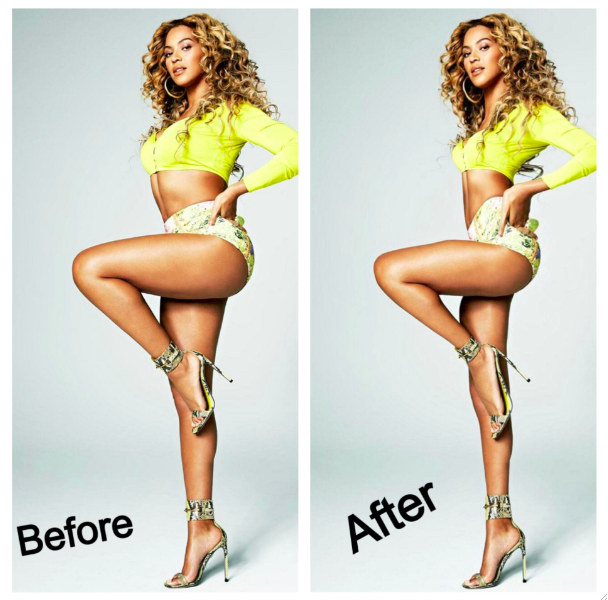These days, it’s not hard to find a digitally enhanced ad.
You know the ones I’m referring to. The 1000-pack abs, an infamous thigh gap , biceps that look bigger than a man’s head.
It’s no secret that the ads we are currently surrounded by are excessively photo shopped, portraying an unrealistic standard in order to catch the consumer’s glance and ultimately make money.
It has recently been brought to my attention that its not just professionals who are using technology to alter bodies of real people.
“There’s an app for that.”
You read that right. A $0.99 app that lets you conform your body like a professional photo shopper would. Apps such as “SkinnyCam,” and “Bodytune,” let you do just that.
Apple has done it again. (Insert eye roll here).
According to the Huffington Post, “28% of cosmetics ads include disclaimers noting that the images were digitally enhanced. 44% of ads appear to be retouched, but have no disclaimers.”
It’s bad enough that all the pictures we are surrounded by of leggy models and flawless celebrities are retouched. Now pictures on social media sites of our own peers can be retouched too.
I’ve found that the growing popularity of social media sites such as Facebook and Instagram allow us to hide behind a profile. We can monitor everything people see of and about us. It’s depressing that there are cheap and easy-to-use apps that further facilitate the creation of this idealistic façade.
My hope is that this article does not bring attention to these apps but rather helps people realize the insincerity that they promote when it comes to external appearance.
We’re not going to stop the media’s excessive use of photo shopping, but we can control our own.
So post pictures au natural. In the great words of Queen B, “I woke up like this.
We flawless, ladies tell ’em.”















































